KIU PhD programme in Interdisciplinary Ukrainian Studies
Call for applications
Opening Event of the KIU Graduate School: 16.06.2025, 6.00 p.m., Logenstraße 11, 15230 Frankfurt (Oder)
The KIU Graduate School is the first structured doctoral program in Germany on Ukrainian studies. At one of the most inspiring research locations, the Viadrina, which is located directly on the German-Polish border, and in the excellent research environment of the KIU, which includes the most important Berlin research institutions, 12 PhD students from various disciplines conduct their research on aspects of history, culture, state, society and conflict related to Ukraine, focusing on the topic on the Graduate School:
Resilience, Restoration and Transformation. Ukraine in a world of turmoil
The war of aggression caused by Russia against Ukraine has not only brought immeasurable suffering to a peaceful country and war back to Europe. It has brought to the surface globally relevant fractures and conflicts, but also violence, colonialism and the elementary breaking of rules that were believed to be part of the past. The immense violence that emanates from Russia until today confronts the global community, the European Union and, in particular, every single European society with the challenge of finding answers to the threat to freedom and the fragility of peace. This is a new era – for societies, for politics, for economies, but also for science and academia.
The KIU Graduate School places Ukraine in the epicenter of a new research program that focuses on the topics of ‘Resilience, Restoration and Transformation’ through the lenses of History, Literature and Cultural Studies, Political Science, Economics, Law, Peace and Conflict Studies, Sociology, Media and Digital Studies. Starting in June 2025, the KIU Graduate School trains a new generation of scholars who will contribute to an entangled understanding of Ukraine within its multiple historical, political, and institutional layers.
KIU PhD Students
Svitlana Andronik

KIU
Svitlana Andronik holds a Master’s degree in Accessible Communication from the University of Hildesheim and a Bachelor’s degree in German philology and translation from the National Linguistic University of Kyiv. She brings professional experience in accessible media design, project coordination, intercultural communication and non-formal education. Her research broadly focuses on web accessibility, translation studies and multilingual communication. Employing a mixed-methods experimental design, her research assesses the comprehensibility and usability of Easy Language translations, aiming to produce practical guidelines for use in public administration, education and media sectors.
KIU research project: Standardization and norming of Easy Language in Ukraine: Developing unified standards for accessible communication
Currently, her doctoral project explores the development of a context-specific rulebook for Easy Language in Ukrainian, considering linguistic structures, multilingualism, and language contact phenomena such as Surzhyk. The project seeks to establish a rule-based framework for Easy Language tailored to the Ukrainian context, grounded in empirical research and international best practices. It addresses the increased need for inclusive communication arising from war-related disabilities and Ukraine’s ongoing integration with the European Union. The research involves detailed text analyses, readability testing and user feedback to optimize translation strategies for cognitively accessible content.
Research interests:
-
accessible communication
-
easy and plain language
-
media accessibility
-
multicultural and multilingual communication
Erik Doesburg
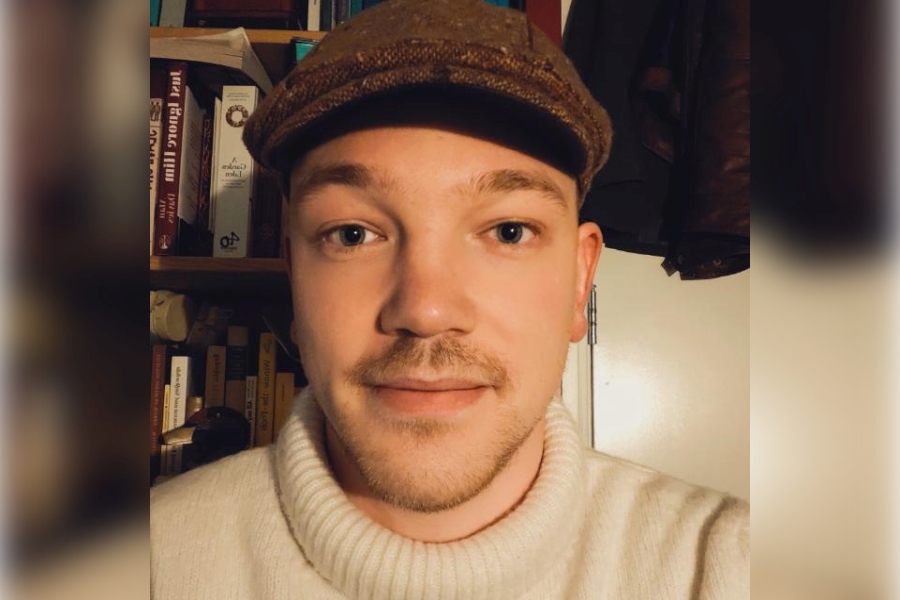
Erik Doesburg
Erik Doesburg studied History at the Rijksuniversiteit Groningen, with special empahsis on the (pre-) modern and contemporary history of Central and Eastern Europe. His main research interests comprise such areas as post-war repatriation of prisoners-of-war/displaced persons, the history of the Ukrainian People’s Republic during the immediate post-revolutionary period, and depopulation. His MA thesis addressed the topic of the repatriation, or lack thereof, of Dutch prisoners-of-war from the Soviet Union between 1943 and 1955, while his previous BA thesis centered on an analysis of political violence carried out by women surrounding the revolution of 1905.
KIU research project: Where the Rhine meets the Dnipro
The project aims to rectify a Ukraine-shaped chasm in historiography by examining the history of Dutch-Ukrainian and German-Ukrainian interactions and entanglements throughout the early to middle 20th century from a decolonial perspective. From German Mennonite settlements in Zaporizhzhia, to a Dutch salt mine in Donetsk, and the large-scale Dutch-German colonial cooperation during the occupation in the context of the Second World War - the history of these various entanglements is as varied as it is extensive.
Pauline Foret
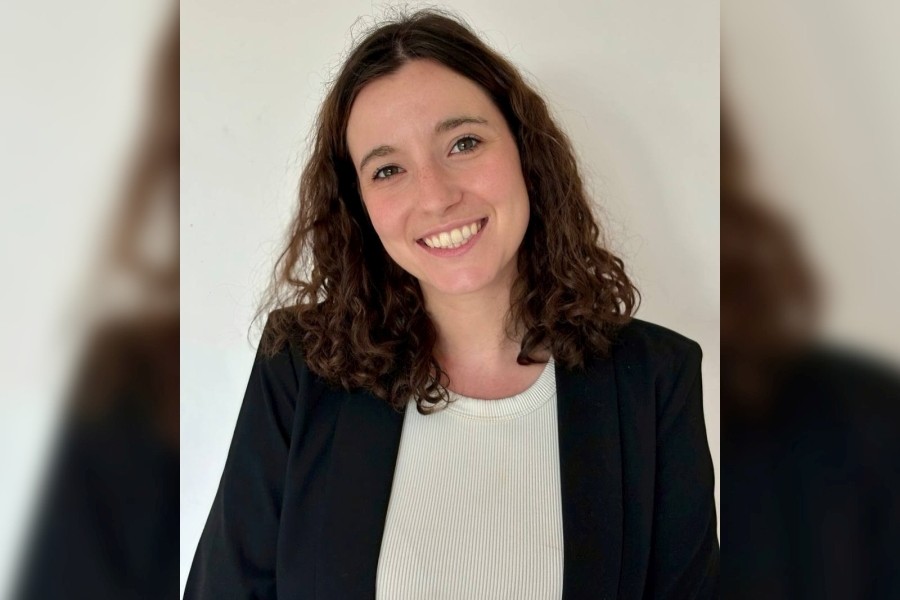
Pauline Foret
Pauline Foret is a political scientist, journalist and researcher specializing in Ukraine and the post-communist space. Her work examines institutional transformation in hybrid regimes, with a focus on patronal politics, wartime governance, and democratic development in Eastern Europe. She holds an MA in Eastern European Studies and Political Science from Freie Universität Berlin, where she wrote her thesis on authoritarian succession dynamics in Kazakhstan, as well as an MA in conference interpreting from the Université de Mons (Belgium). Fluent in French, English, Russian, and German—and conversational in Ukrainian—she has conducted fieldwork in Ukraine and Armenia.
KIU research project: Maturity or resilience? Assessing the adaptivity of patronal networks in Ukraine´s wartime institutions.
This research explores how Ukraine’s patronal political systems have adapted to the pressures of Russia’s full-scale invasion. While the war has weakened traditional oligarchic networks and empowered civil society and reform-oriented external actors, it has also generated new centers of discretionary power—particularly in mobilization, defense procurement, and border control. This study examines both the erosion and evolution of patronalism in wartime, and how these dynamics shape Ukraine’s prospects for transitioning from a limited access order to a more open, democratic political system.
Research interests:
-
intersection of political institutions
-
conflict
-
post-Soviet transitions
Roman Kmyta
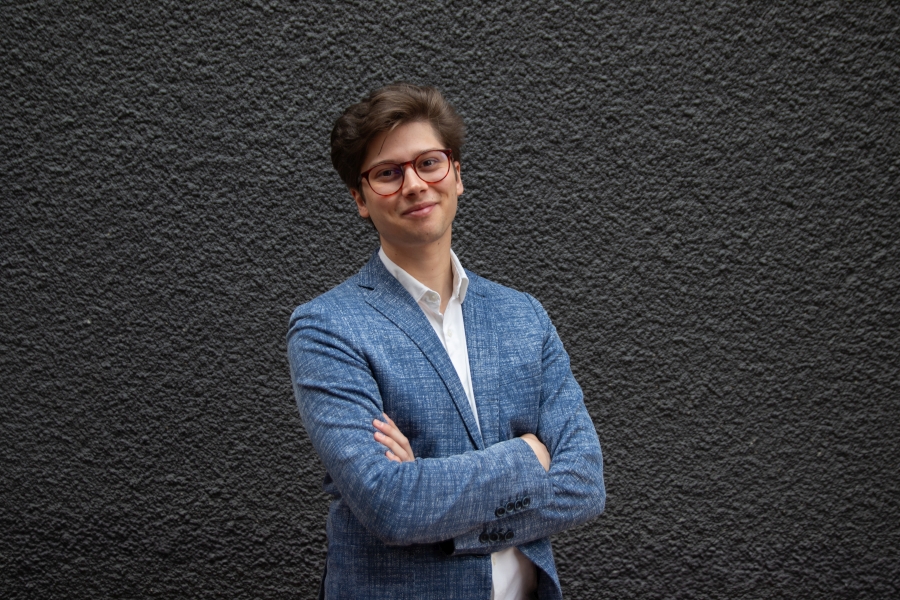
Roman Kmyta
Roman Kmyta holds an MSc in Media and Communication Studies from Lund University, where he received the Peter Dahlgren Dissertation Award, and a BA in Political Science (summa cum laude) from Ukrainian Catholic University. His professional experience bridges politics, media, and civil society, including roles as a teaching assistant at Lund University, an internal communications consultant at Emmaüs-Oselya, a journalist intern at Transparency International Ukraine, and assistant to the MP in the Verkhovna Rada of Ukraine.
KIU research project: Audiovisual Communication During the Russian Full-scale Invasion of Ukraine: Investigating European Perceptions of Vulnerability and Power Through War-related Content on Social Media
The project explores Ukrainian media framing of war-related content on Instagram and TikTok and how it is processed by young-adult European audiences, with a focus on the demonstration of power and vulnerability. It analyses media production and audience perception to see how audiovisual elements influence the meaning-making process. This project employs framing analysis, production interviews, surveys, and focus groups with German and Swedish audiences. It provides insights into mobilizing empathy and support for ‘distant others’ in times of war.
Research interests:
-
conflictual media events
- media engagement
- meaning-making process
- transnational audiences
- content moderation
Anna Petrova
Anna Petrova
Anna Petrova is a dynamic art historian specializing in Ukrainian contemporary art and Eastern European heritage, with a strong academic and curatorial background. Holds an MA in Art Criticism (Kharkiv State Academy) and a BA in Cultural Studies (Odesa National University). Research Fellow at Documenta Archive Kassel (2024–2025) and researcher at Stiftung Preußische Schlösser und Gärten (2022–2024) and Odesa National Fine Arts Museum (2019-2022). Curated high-impact exhibitions (e.g., Goldnarben, Erinnerungen an die Zukunft) and published scholarly works on art representation. Recipient of prestigious grants (Goethe-Institut, Ernst von Siemens Kunststiftung). Member of the German Society of Art Historians. Focus: bridging academic rigor with innovative curatorial practices to advance cultural dialogue.
KIU research project: The Representation of Ukrainian Contemporary Art in German Exhibition Spaces (1991–2025)
What stories do exhibitions tell—and whose voices shape them? This PhD research dives into the evolving representation of Ukrainian contemporary art in Germany from 1991 to 2025. Against a backdrop of shifting geopolitics and war, it unpacks how curators, institutions, and artists have negotiated identity, memory, and visibility in the German cultural field. At the intersection of art history and cultural diplomacy, this study asks: How does a nation rewrite its image through art abroad? And can exhibitions become battlegrounds for sovereignty in the soft power arena? This study examines the institutional and curatorial mechanisms shaping the reception of Ukrainian contemporary art in Germany, analysing how geopolitical shifts, cultural diplomacy, and artistic practices have influenced its representation. Through archival research, exhibition analysis, and interviews, the project traces four key phases: post-Soviet integration (1991–2004), increased visibility (2004–2014), post-Euromaidan cultural diplomacy (2014–2022), and wartime recontextualization (2022–2025). Grounded in art historical and postcolonial theory, it critiques exoticizing narratives while highlighting Ukraine’s agency in transnational art discourse. The research aims to redefine Ukrainian art’s position within European art history, offering a systematic framework for understanding its evolving institutionalization and reception in Germany.
Oksana Potapova
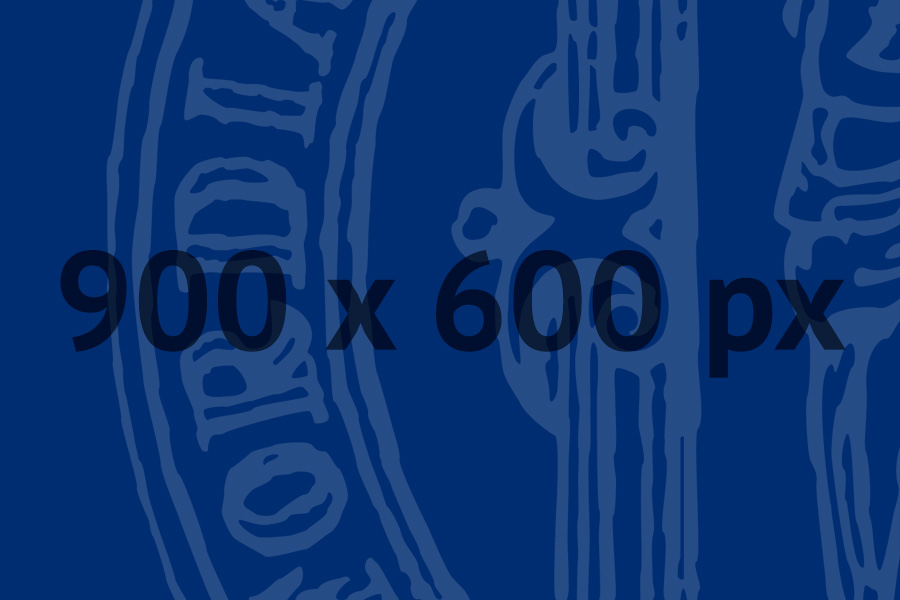
Viadrina
Mona Richter
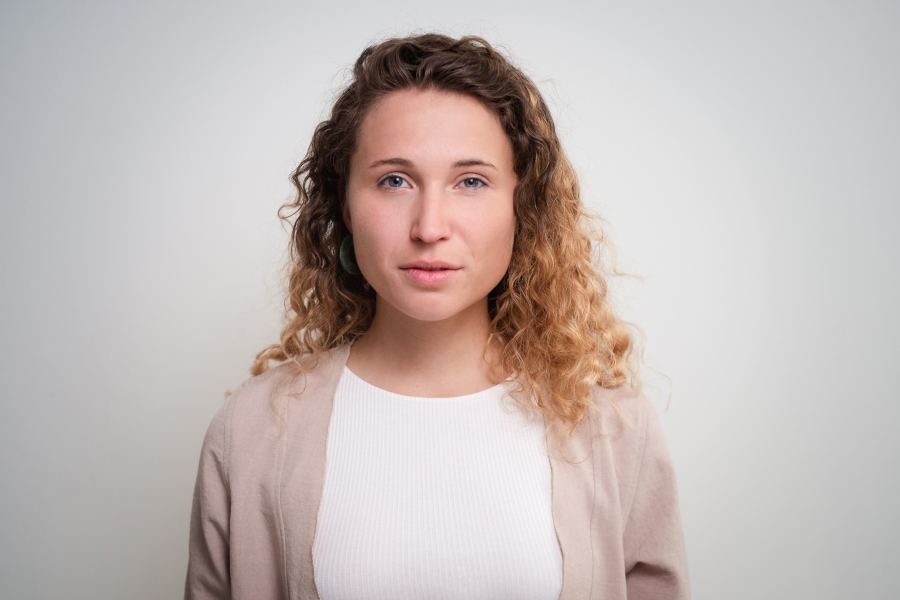
Stefan Lengsfeld
Mona Richter holds an M.A. in International Relations from Free University Berlin, Humboldt-University Berlin and University of Potsdam and a B.A. in European Studies from Maastricht University with exchange semesters at Queen’s University Belfast and Free University Amsterdam. Mona’s academic and professional interests span peace and conflict studies, political resilience research, political sociology, in particular democracy and transformation research, civil society and civic change, human rights and international law, with a focus on Ukraine and the broader Central and Eastern European region. She has worked in several think tanks, NGOs and research institutions in Berlin and Kyiv.
KIU research project: From Resilience to Recovery and Back: Civil Society and Wartime Recovery in Ukraine
In this dissertation the role of Ukrainian civil society in and conceptualisation of recovery amidst the ongoing Russian war of aggression is examined. Conventionally, recovery is often perceived as a post-war phenomenon focused on rebuilding physical infrastructure and restoring economic stability. However, this study challenges this linear perspective by examining recovery as a dynamic and ongoing phenomenon that occurs amidst the ongoing war. It posits that civil society actors, both formal and informal, shape a distinct recovery approach based on resilience, resistance, and long-term transformation. This research seeks to uncover patterns, mechanisms, and variations in recovery across different regions, organizational structures, and historical trajectories in Ukraine.
Research interests:
-
civil society
- recovery
- peace & conflict
Anastasiia Rodi
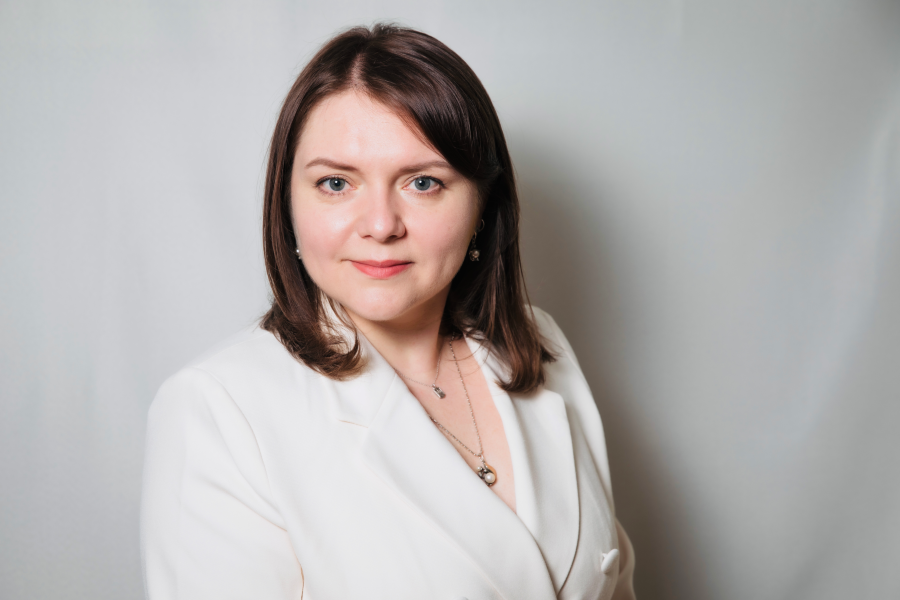
Volodymyr Kutsenko
Anastasiia Rodi (Magazova) is a Ukrainian-German journalist and political analyst, born in Simferopol, Crimea. She holds MAs in Ukrainian Philology (V. Vernadsky Taurida National University, Simferopol, 2011) and Political Science (Freie Universität Berlin, 2023). Since 2013, she has worked as a correspondent for German and international media (taz, DW, RFE/RL), primarily covering Russia’s war against Ukraine. Her interests include German-Ukrainian relations, democratic backsliding and authoritarianism, Western policy towards authoritarian regimes, and the role of disinformation. She was an EJF Fellow (FU Berlin, 2019–2020) and a cohort in the Digitalisation and Democracy Programme at the Aspen Institute Germany (2025).
KIU research project: Demining Democracy: Ukraine’s political challenges in wartime
This PhD project explores how Russia’s full-scale invasion has impacted democracy in Ukraine. It analyses whether emergency wartime measures could become permanent and lead to democratic backsliding. Despite restrictions, public support for democracy remains strong, though trust in institutions is fragile. Combining theories of democratic backsliding, wartime democracy, and social constructivism, the project investigates institutional changes and shifting public perceptions of democracy. Using discourse analysis, interviews, and survey data, it offers insights into the functionality of democracy during wartime, rather than in the aftermath, thereby contributing to broader debates on democratic resilience and challenges in times of war.
Kateryna Serdiuk
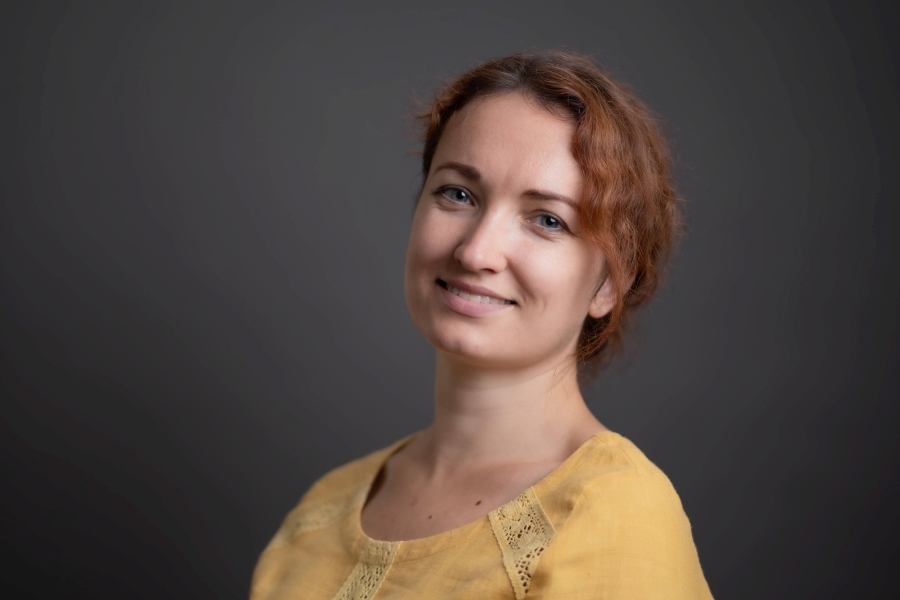
Kateryna Serdiuk
Kateryna Serdiuk, MA of Philosophy, MA of Law, successfully completed ‘Interdisciplinary Program Anti-Corruption Studies’ (National University of Kyiv-Mohyla Academy) and Invisible University for Ukraine Certificate Program (Central European University). Experienced project management expert in the field of democracy governance, transparency and accountability of national and local authorities, civic engagement in democracy processes and human rights protection.
KIU research project: Access to public information as a legislative basis for the formation of democratic control over the observance of the Rule of Law in modern Ukraine (after 1991)
The project explores ways of understanding the concept of openness, transparency and accountability of power in Ukrainian society through the legal institution of access to public information. It analyzes the legality and reasonability of restrictions on access to public information and influence of instrumentalization of public information access on participatory democracy processes during crises of democracy in history of independent Ukraine.
Research interests:
-
participatory democracy processes in Ukraine and Europe
- public information access and information protection
- technical and anti-corruption expertise of legal acts
- non-democratic regimes collapse and violence escalations
Mariia Tkachenko
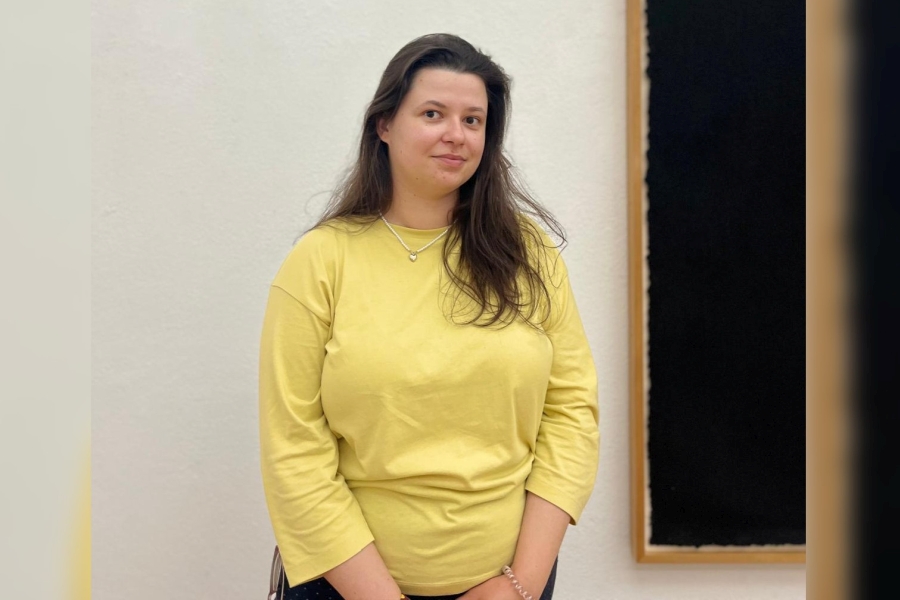
Mariia Tkachenko
Mariia Tkachenko is a literary scholar. She received bachelor's and master's degrees in the subject area of Literary Arts, Ukrainian Language, and Literature at Taras Shevchenko National University of Kyiv. In 2017 she started her research on the history of Ukrainian Soviet Literature at the Taras Shevchenko Institute of Literature of the National Academy of Sciences of Ukraine. Along with academic activities, she is engaged in art journalism.
KIU research project: Depictions of Soil in the official Ukrainian Soviet literature during Collectivization, 1928-1933
The research project is to analyze how official Ukrainian Soviet literature depicted the worth of soil and plants grown on it during 1928–1933, the period of Collectivization in the Ukrainian Soviet Republic. To accomplish this, the theoretical views of the members of the literary organization Pluh, as expressed in their journal Pluzhanyn, will be studied to see how members of Pluh, a union of peasant writers, active from 1922 to 1932, crafted the understanding of Ukrainian Soviet peasant literature and ways to articulate the causes and the benefits of Collectivization.
Research interests:
-
soviet Ukrainian literature
- socialist realism
- art and Literature at the end of 1920s-beginning of the 1930s
- soviet marxist aesthetics, proletarian art and literature
Maria Vtorushyna
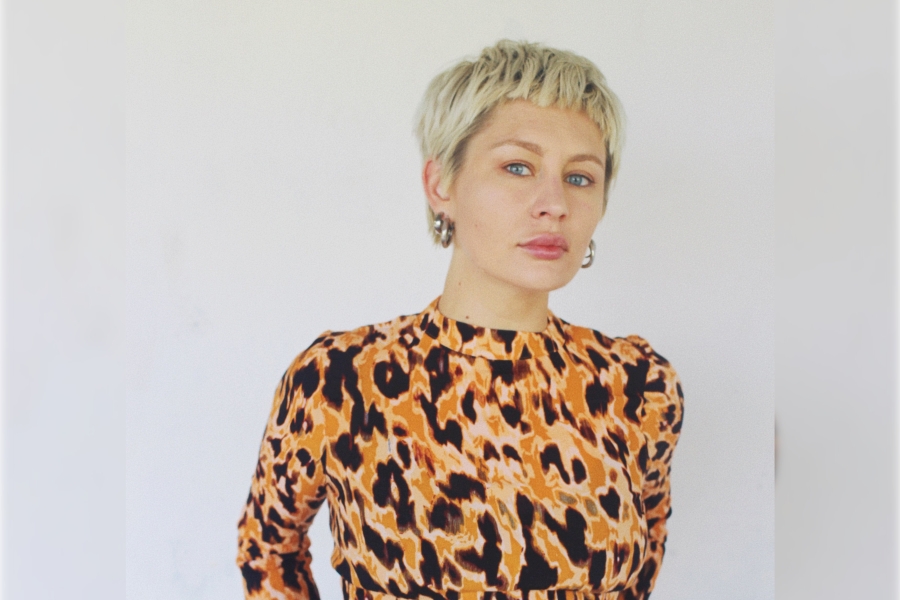
Maria Vtorushyna
Maria Vtorushyna (they/them) is an art historian, researcher, and curator with a particular interest in notions of freedom, queer and feminist epistemologies, gender diversity, and the coloniality of gender. They obtained an MA in Art Theory and History from the National Academy of Visual Arts and Architecture in Kyiv. Maria has been a researcher at the Centre for Gender and Diversity at Maastricht University, editor-in-chief of Artslooker Magazine, a curatorial fellow at Künstlerhaus Bethanien (Berlin), and has worked at the Staatliche Kunstsammlungen Dresden.
KIU research project: Queer Bodies in Ukrainian Art
It is a research project examining how queer bodies—those desiring or engaging in same-sex relations, trans* and intersex bodies, and others defying heteronormativity—are represented in Ukrainian art from 1991 to 2025. It explores the queer body as both individual and socially shaped, positioned at the margins of public life, especially under post-Soviet and wartime conditions.
Vita Zeyliger
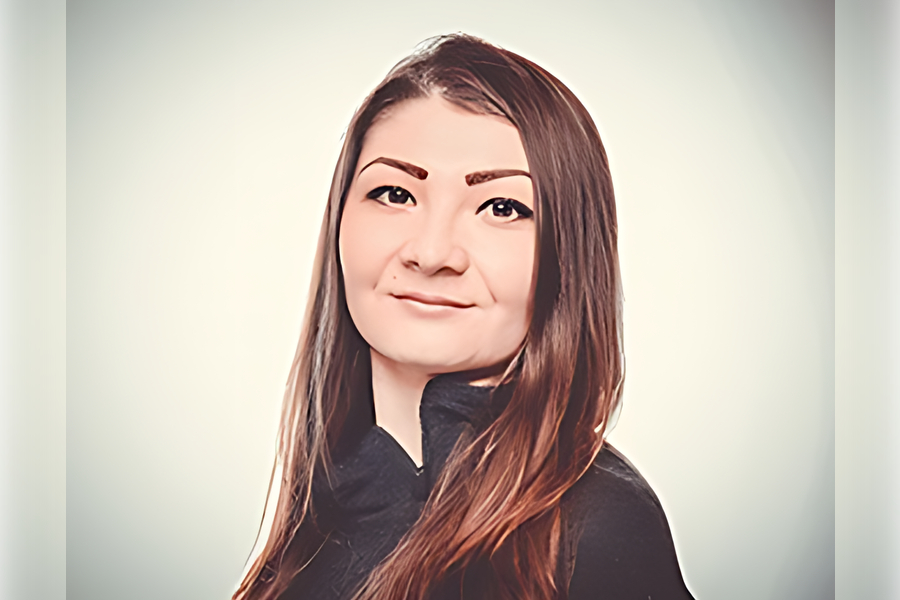
Vita Zeyliger
Vita Zeyliger previously worked as a research associate at the Institute for East European Studies at Freie Universität Berlin, conducting extensive econometric analyses of post-Soviet regional organizations. Holding a master's degree in Politics and Constitution from the Technical University of Dresden, she has undertaken qualitative studies on anti-corruption policies in Ukraine and Georgia, investigating the post-Soviet transitions, particularly in Ukraine. She is a young scholar with expertise spanning international relations and political science, including both quantitative and qualitative research, as well as data evaluation with R programming.
KIU research project: Fighting corruption during the Russian war of aggression: The effectiveness, institutional fitness, and performance of the leading Ukrainian anti-corruption agency compared to the Baltic anti-corruption bodies
The doctoral research will examine the effectiveness of Ukraine's leading anti-corruption agency during the Russian war of aggression in comparison to the Baltic anti-corruption agencies. The inhibiting impact of the Russian military invasion on the Ukrainian National Anti-Corruption Bureau will be studied from the innovative theoretical perspective of evolutionary institutionalism. This novel and groundbreaking quantitative investigation of the Ukrainian anti-corruption body during wartime, compared to pre-war dynamics, will introduce new approaches to studying anti-corruption efforts.
Research interests:
-
international relations
-
domestic and international institutions & organizations
-
anti-corruption agencies
- post-Soviet democratic transformation
-
Ukrainian revolutions
Infobox: Contact
Dr. Susann Worschech
- Große Scharrnstraße 59, 15230 Frankfurt (Oder)
- kiu@europa-uni.de
- KIU
Besuchsadresse:
Große Scharrnstraße 23 a